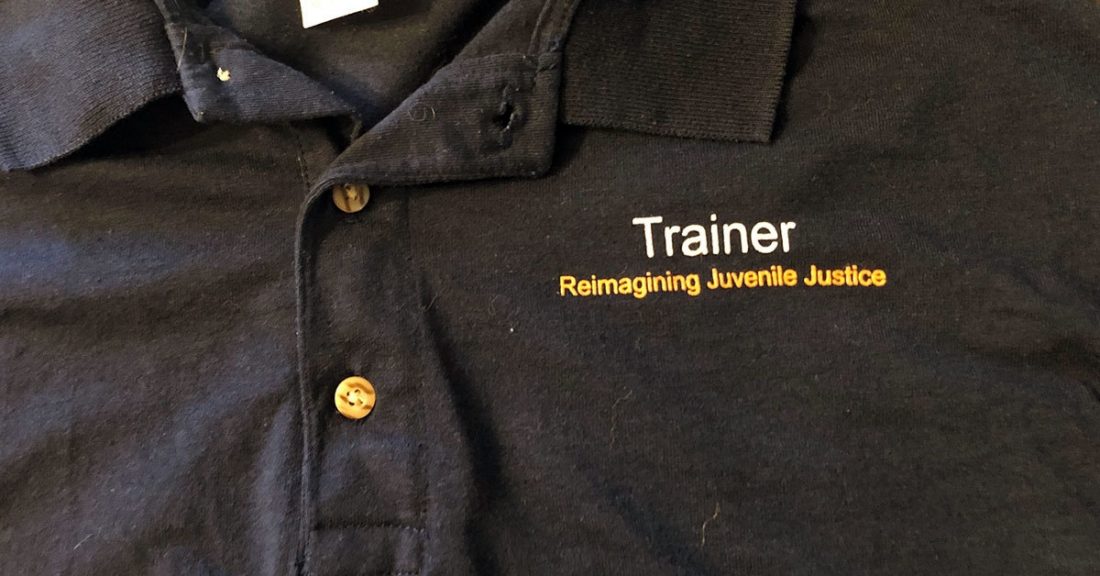Casey Selects 16 Organizations to Train Juvenile Justice Staff on the Frontlines

The Annie E. Casey Foundation has selected 16 state and local juvenile justice agencies and related organizations to conduct professional development based on the Reimagining Juvenile Justice (RJJ) curriculum. This training is for frontline staff who are working with youth involved in the juvenile justice system and their families, and it is designed to help these staff better support, divert and redirect youth to appropriate and fair justice options.
A closer look at RJJ
The RJJ training curriculum’s goals are to:
- improve system and youth outcomes by providing alternatives to justice system involvement and incarceration;
- instill positive programs, support and opportunities so that young people can develop to their full potential; and
- increase collaboration across public systems.
The chosen agencies and organizations will participate in the virtual 2020 RJJ Train-the-Trainer Institute sponsored by the Foundation and delivered by the School & Main Institute. This training equips agencies and organizations to take RJJ’s concepts, curriculum and instructional approach back to their home jurisdictions.
The curriculum itself encourages juvenile justice professionals to build on young people’s strengths and assets and to center their work in racial and ethnic equity. Professionals will also learn how to navigate and collaborate with other public systems to fully access resources for young people.
“Early adopters credit the RJJ curriculum with making their staff more receptive to opportunities for positive youth development for the young people they support,” says David E. Brown, a senior associate at the Foundation. “Jurisdictions report they are pursuing initiatives such as youth-led and adult-guided countywide advisory workgroups and more family-friendly discharge processes for youth leaving probation.”
What’s next for the 16 training organizations?
Because of the COVID-19 pandemic, the institute will take place as a series of online sessions from October to December 2020. Following the institute, the teams of trainers representing each site will deliver the RJJ curriculum to colleagues in their home communities and jurisdictions between January and September of 2021.
Will the RJJ curriculum be available broadly?
Casey and School & Main plan to make the RJJ curriculum accessible online to the field in 2021.
Who are the participating organizations?
Through a competitive process, the Foundation selected 14 county-focused and two state-level initiatives. These organizations are:
- AMIkids, Inc, East Baton Rouge Parish, Louisiana
- 29th Judicial Court, St. Charles Parish, Louisiana
- Cadence Care Network, Ashtabula, Ohio
- Camden County Department of Corrections, Youth Services Commission, New Jersey
- Charter County of Wayne, Detroit, Michigan
- Colorado Department of Probation, Greeley, Colorado
- Cuyahoga County Juvenile Court, Ohio
- Delaware Center for Justice, Wilmington, Delaware
- Delaware County Juvenile Court, Ohio
- Florida Circuit 7 Department of Juvenile Justice Advisory Council, Volusia County, Florida
- Juvenile Court of Fairfield County, Ohio
- Lorain County Department of Probation and Youth Services, Ohio
- Madison County Juvenile Probation, Indiana
- Madison County Juvenile Court, Tennessee
- Neighborhood College, Riverside, California
- Siblings Together, Washington, D.C.
What came before the 2020 RJJ Train-the-Trainer Institute?
The first RJJ Train-the-Trainer Institute occurred in May 2019 with 15 participating sites. Between July 2019 and January 2020, RJJ trainers delivered the course to more than 450 professionals at their respective sites. These individuals represented an array of agencies and organizations, including juvenile detention, probation, child welfare, youth and family services, courts, local law enforcement, school districts and community-based agencies.
“RJJ has been demonstrated to move systems and communities to deepening approaches and practices that reflect what we know about positive youth development,” Brown says.






